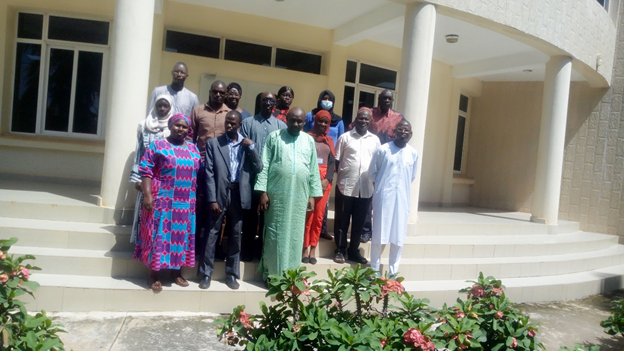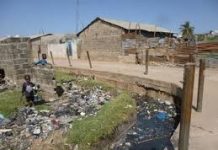By Ndey Sowe
The Department of Water Resources in collaboration with the Gambia National Commission for UNESCO with funding from UNESCO Multisectoral Office in Dakar, Senegal, has launched and consolidated the establishment of the National Intergovernmental Hydrological Programme (IHP) Committee in the Gambia.
In February, 2020, the Department of Water Resources in close collaboration with UNESCO-NATCOM officially formed the national committee of the aforesaid committee in The Gambia for the first time in history.
The mandate of the committee as per the guidelines of UNESCO is to play a key role in the overall water sector governance in the country and support the implementation of UNESCO’s IHP Programme.
The launching and consolidation took place at NaNA Conference Hall, Bakau on Wednesday 8th to Thursday 9th September, 2021 and it brought together various stakeholders.
Speaking at the event, Lamin Jarjou, Senior Programme Officer of UNESCO-NATCOM Gambia said the IHP Programme National Committee was set up on 17th February 2020 through the close collaboration of the National Commission for UNESCO and the Department of Water Resources. He said the IHP National Committee, as a national governance structure of UNESCO, has a major stake in the water sector reform process in the country.
“As in many other countries, the committee was dormant in The Gambia for several years. As such, UNESCO’s IHP Council’s overall recent reform agenda highly recommends the revival and strengthening of these committees at national level,” Jarjou said.
Jarjou added that its main role is to strengthen partnership with the Vice-Chair of the IHP Council from the region and the UNESCO Regional Hydrologist, so as to create effective communication and exchange channels. He also said among other roles of the IHP includes initiating and sustaining a robust bond with The Gambia National Commission for UNESCO in order to support its overall participation in UNESCO business and take part in international discussions and decision making for UNESCO
Speaking further, Jarjou explained that the committee can also network with close to 168 IHP National Committees worldwide and has comparative advantage in view of its composition, which includes key stakeholders from government ministries, departments, local government authorities, NGOs, community-based organisations, private consultants, professional bodies and the media.
Malang Darboe, Deputy Permanent Secretary (DPS) at the Ministry of Fisheries, Water Resource and National Assembly Matters, said the abovementioned initiatives cannot stand alone in the quest to normalize water resource management and development. Thus, he said the Intergovernmental Hydrological Programme (IHP) national committee- a national governance structure of UNESCO, has a major stake in the current water sector reform process in the country.
“This could not have come at a better time than now as the government of The Gambia embarks on strengthening partnership with stakeholders at both national and regional levels to create effective communication and information sharing in order to enhance integrated water resources management,” Darboe said.
DPS Darboe added that reactivating the IHP national committee will contribute significantly towards the sustainable management of water and related resources for sustainable development. This, he believed, would drive to the attainments of the sustainable development goals (SDG 6 on water).
He assured his ministry and NAMs’ full support and guidance to the committee within its ability to facilitate the effective functioning of the committee.





















